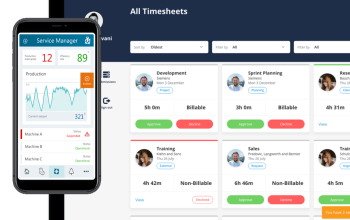Although tech companies may prefer remote work arrangements, many remain attracted to cities which foster technological innovation and talent recruitment. Some of the best tech hubs have created diverse and inclusive cultures with easy access to funding sources as well as providing an environment conducive to business expansion and room for future growth.
Columbus, Ohio
Columbus, the state capital of Ohio and home to one of America’s premier universities – Ohio State University. Additionally, this city hosts large corporate headquarters including Nationwide Insurance, Abercrombie & Fitch, JP Morgan Chase and Cardinal Health.
Over the past several years, tech companies have been rapidly moving their operations from Silicon Valley to Columbus due to the city’s affordable cost of living allowing them to expand faster than in Silicon Valley. Coupled with rapid expansion seen during COVID-19 pandemic in numerous “rising star” cities suggests there may be significant adjustments taking place across our technology geography as workers, investors and company location decision-makers seek out affordable yet comfortable places for operations – whether this shift will prove permanent remains to be seen; nonetheless it warrants close observation.
Durham-Chapel Hill
Raleigh-Durham remains an attractive region for tech businesses despite its relatively small population. Thanks to its diverse economy dominated by research universities and medical facilities, which offers access to global medical expertise, this region continues to draw in startups that specialize in anything from metaverse technology to plant-based protein.
Tech professionals may find employment easier here due to its well-educated workforce; according to WalletHub estimates, 22,124 IT jobs should be added over the next five years in Seattle alone.
Companies need dozens or even hundreds of skilled IT employees in order to be competitive, and companies often prefer cities that attract these employees with higher wages. That is why Austin, Dallas, Raleigh-Durham and Columbus rank so highly on CompTIA’s Tech Town index – this index considers several components such as workforce talent, capital growth opportunities and cost of living in its calculations; ultimately determining which IT hubs offer the greatest opportunities.
Dallas
Tech companies require many highly-skilled employees. Therefore, many tech businesses opt to settle in large tech hub cities in order to attract top talent. But as return-to-office policies and remote work policies limit this talent pool’s growth potential, tech businesses may begin looking elsewhere for growth opportunities.
Pre-pandemic, several leading metropolitan areas accounted for most of the nation’s new tech jobs; however, rising stars Atlanta, Dallas, Denver and St. Louis experienced their share of industry increase – as did lifestyle and university cities such as Nashville Tennessee and Madison Wisconsin.
Pittsburgh has done well to capitalize on its steel industry roots by developing an ecosystem of data and analytics companies. Notable examples are Credit Karma, EPAM Systems and Torc Robotics – not to mention high salaries and reasonable costs of living that make Pittsburgh an attractive location for tech professionals.
Austin
Austin’s tech sector has long struggled to gain its self-declared moniker of “Silicon Hills”, facing stiff competition from San Francisco Bay Area tech sectors. Austin shares some similarities with Bay Area in terms of origin points such as Michael Dell’s dorm room at University of Texas Austin (UT), as well as being an incubator of entrepreneurs collaborating across counterculture backgrounds.
COVID-19 may still have some lasting repercussions, yet the initial year of its pandemic did not bring the widespread disaster some feared. Eight established hubs saw only minor increases in their share of total tech employment across the nation.
2020 saw significant tech expansion across a number of secondary metro areas, from northern business cities such as Philadelphia and Minneapolis, substantial university cities like Chapel Hill NC; lifestyle centers like Virginia Beach VA; Ogden Utah; and Albuquerque New Mexico. Many secondary hubs offered salaries that can compete favorably with Silicon Valley while offering reduced living costs.




